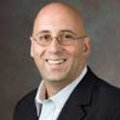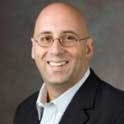Expect the unexpected: How much should dentists save as an emergency fund?
In our financial lives, one of the most basic planning tools is the trusty emergency fund—that cash sitting in the bank that helps you feel safe and secure each night. You know, that money you’ve been setting aside “just in case.”
Unexpected versus emergency
The term “emergency fund” can conjure up some vivid pictures. When the team members at my firm, Slate, Disharoon, Parrish and Associates LLC, discuss emergency funds with clients, things like “broken transmission in the car,” “the fridge died,” or “I’ve got to take advantage of that flat panel TV I saw on sale” come to mind. These are all good, but hardly constitute an emergency, and can reduce the level of conviction a person can have to actually set funds aside.
We prefer to call this account the “unexpected expenses account.” This can include all of those things, but we generally see people tapping these funds for things like an unexpected death in the family, an IRS audit, serious health problems in the immediate family, or a lawsuit.
How much is enough?
This is the question asked most often by our clients in regard to an unexpected expense fund. Our answer, while not always satisfying, is true—the amount is different for each person. There are rules of thumb such as three to six months, but in the real world, using rules of thumb in your financial life are generally not wise. Each person must take into account several things in order to come up with their number.
You need to ask questions such as:
• What are my professional risks? Some professions are exposed to greater risks than others. Keeping in mind elimination periods on disability insurance, limits on umbrella policies, malpractice insurance, and more, people should take the time to calculate their own potential risks.
• How long could my practice continue to generate revenue if my unexpected expense involved me not being able to work? An unexpected death in the family that requires an extended out-of-town trip could have you out of the office for several days. If you do not have partners who can step in to assist, revenue can quickly drop off and your receivables may not cover your absence.
• What is my personal situation? Do you have a special needs child? Do you have several children in school? Are the kids in college in another state? Are you part of a mixed family? All of these are contributing factors to the amount you need in your unexpected expense fund.
Finally, there is an emotional need for cash on hand. Some people think having a specific amount of money in the bank feels right, while others are more intellectual and think that having a specific number of months in the bank is best.
Getting the opinion of advisors such as your CPA, attorney, and financial advisor can help you dial in the amount you’ll want to set aside. Whether a person makes $50,000 or $1 million a year, the great equalizer is the need for cash for the unexpected. The bottom line is that any amount is better than zero.
_______________________________________________________________________________________________
ALSO BY WILL PARRISH
Getting more into your retirement plan so one day you can get more out
“Your diagnosis is not good…” 5 things dentists should do when diagnosed with a disability
_______________________________________________________________________________________________
Where should I put the money?
This is another question we hear often, and while I cannot give specific advice to the general public, I can say that you want these funds where they are easily accessible and not exposed to any risk of loss. Generally, a regular savings account at your bank is where you can establish an account to serve this need, but there are several places people can store their funds based on their situation.
Next steps
If you find yourself in the same situation as many Americans, with no funds set aside for the unexpected, there are some practical steps you can take to get on the right path.
• Envision how it would feel to have adequate funds where you can easily access them. Would it feel good to have the extra security?
• Think about the things that could pop up in your life unexpectedly. Do these possibilities cause you discomfort?
• Would it be too difficult to take 10% to 20% of each draw, dividend, or salary check you bring home and set it aside for the unexpected?
Note that I do not suggest you start with “How much do I need in my account?” because that can lead you to become discouraged. If you “need” $100,000 in your unexpected expense account and you have zero, that can be discouraging. Instead, simply start with what you have available. Any amount is better than zero!
If you do not have a fee-based financial planning firm on your team of advisors, consider visiting our website at sdp-planning.com to see if we might be a good fit. Our team prides ourselves on remaining objective and creating relationships. Our contact information is on the website.
Securities offered through Registered Representatives of Cambridge Investment Research, Inc., a Broker/Dealer, Member FINRA/SIPC. Advisory services offered through Cambridge Investment Research Advisers, Inc., a Registered Investment Advisor. Slate, Disharoon, Parrish & Associates, LLC and Cambridge are not affiliated.
About the Author

Will Parrish
Will Parrish is a founding partner of Slate, Disharoon, Parrish & Associates LLC in Knoxville, Tennessee. He specializes in risk management for his clients, who tend to be business owners and professionals. Will focuses on protecting his client’s interests and assets, whether under the umbrella of a comprehensive financial plan or through the use of financial products. Feel free to contact him with questions at [email protected] or (865) 357-7373. Visit sdp-planning.com or connect with him on LinkedIn.
Updated May 2, 2018


